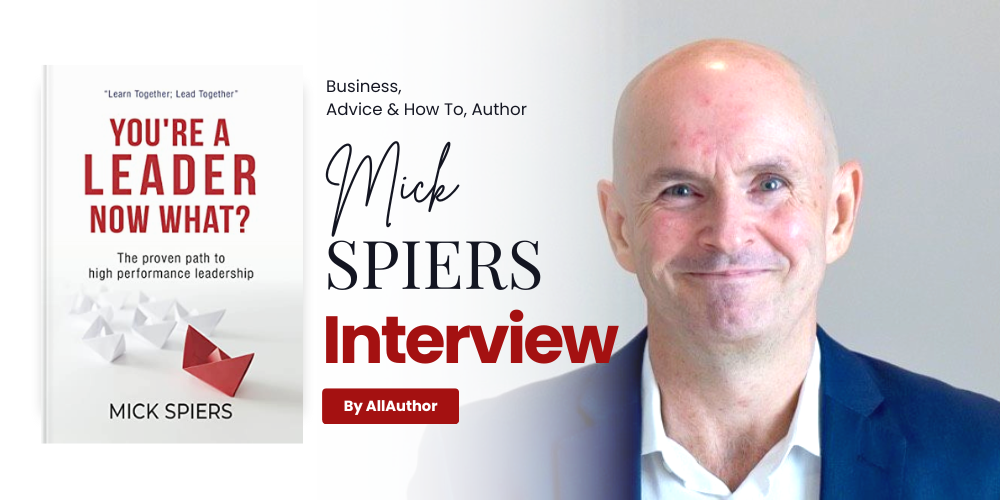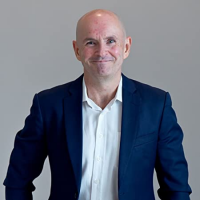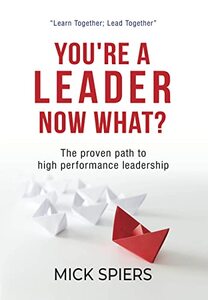Mick Spiers Interview Published on: 22, Nov 2022
 What was your life like growing up? What’s your strongest memory of your childhood?
What was your life like growing up? What’s your strongest memory of your childhood?
I grew up in a broken family. My mum was a only parent of 4 boys. She worked incredibly long hours to support us. She was very purpose-driven working in a refuge for Women that were escaping domestic violence situations.
At the time I resented the amount of time she was never at home. It was not until she passed away that I truly realised the positive impact she had on my life.
My values and purpose to help other human beings comes from her and I never had the chance to thank her for that.
When did you start writing full-time and why do you think you didn't try before that?I started in 2021. Until that point I was fully immersed in my corporate existence and never had the time to make it work.
What is The Leadership Project about?I founded The Leadership Project because of the leadership crisis I see in the world. Only 20% (1 in 5) of people in the world truly love their job and like their boss. We are spending up to 1/3 of our lives in jobs that do not inspire us, or worse still completely stress us out. That is a tragedy.
The Leadership Project’s vision is to inspire all leaders to challenge the status quo. To stop repeating the leadership mistakes of our predecessors and to redefine what it means to be a leader.
We empower leaders with all of the knowledge and skills they need to create amazing teams and amazing workspaces so that people can fall back in love with their jobs again.
What was your main source of inspiration for the book, "You're A Leader Now What?"?“You’re a leader, now what?” is inspired by the rollercoaster of emotions that first time leaders go through. They have the euphoric highs that they have finally recognised for their skill and prowess. Followed by the thud of anxiety when they realised that no one has ever shown them what it means to be a leader.
Their typically path is to then start mimicking the behaviour of leaders before them and the cycle of poor leadership continues.
What sort of cultural, spiritual, or social value do you think reading and books hold?Books change lives. A well-written book challenges your beliefs and gets you to see the world through a different lens.
The true power is in reflection. For you to read the book and discover what it means for you. To self-reflect and consider your own limiting beliefs and discover new ways of thinking.
What challenges did you face while writing the book, “You’re a Leader, Now What?”?Biggest challenges were getting started and deciding when to stop.
I overcame the “getting started” dilemma through a great mind map and outline.
For knowing when to stop, I had to consider my avatar and decide what they need. I ended up deleting some chapters and reserving that content for future books in the series.
What are some common marketing traps a lot of new authors fall into? Any advice on how to avoid them?The biggest limiting belief or factor is impostor syndrome and fear of rejection. No one can ever buy a product they don’t know about. Yet, I see authors that are too shy to tell their friends that they wrote a book.
We should never underestimate the power of our own warm network and that people are typically waiting to support you, not shoot you down. Tell everyone; be proud.
How will the craft of storytelling change in the future? How can novelists, filmmakers, television producers, and game designers adopt it?Attention spans are getting shorter and shorter in a “3-second world” of TikTok and Instagram.
We need to master the art of “the hook” and build suspense faster than before.
If you do not capture someone’s attention and build their anticipation quickly they will just swipe left.
I am not talking about clickbait. People grow tired of that quickly.
I am talking about capturing attention; evoking emotion; stimulating curiosity; and building suspense quickly.
Do you have a specific routine for writing that you follow? Or do you prefer to like whenever and wherever?I write early in the morning (4am) when the house is quiet and my mind is rested. I write in 90-minute blocks and use binaural beats through my airpods to maintain focus. This works for me. You need to experiment to see what works for you.
How can one know his true potential?Self-discovery and exploration. Asking yourself challenging questions about what you really love doing and how that thing helps other human beings.
Humility is a wonderful thing but it also works against us sometimes. We are taught from a very young age that we should be humble, but this can create a situation where we start denying our own superpowers and gifts.
Humility and confidence are a potent combination. We can be humble about our shortcomings, weaknesses and mistakes whilst still being proud to own our strengths.
Sometimes we may need someone else to show us. It is not easy to read the label on the jar from inside the jar. Allow someone to help you see your strengths and your blind spots.
We also spend too much time trying to correct weaknesses and not enough time building upon our strengths. Your time is sometimes better off spent mastering your talent than working on something you are not good at. You can acknowledge your weakness and allow others to help you with those, whilst dedicating time to build on your strengths.
How important do you think is the cover of a book?Critical. This cannot be underestimated. In a 3-second world people glance at your book in seconds before moving on. Your cover needs to be eye-catching and your book title should be “clear, not clever”. You want to leave it crystal clear who your book is for and what it is about.
Who is your target audience? What are some things you wish your readers would take away from your books?My original target audience was first-time leaders, but it turns out that people at all stages of their leadership journey are loving the book.
One of my favourite things in life now is to hear people replay to me things that took away from my book. It brings me great joy and fulfilment every time that happens.
When it comes to writing a business book, what are some of your top tips? Do you wish to write in any other genre?For business books it is important to understand your avatar and what they need to know. It is easy to forget that you did not always know the things that you know now. Some topics will be things that obvious and second nature to you now, but for the reader they are discovering this for the first time and it will be truly transformational for them.
The more of an expert you are, the harder this becomes to do, but it is critically important.
Yes, I would love to write Fiction one day, but I still have many more books on leadership, psychology, and business that are bursting out of me.
Are you working on anything at the present you would like to share with your readers?I have started working on my next 2 books. My next book is called “The Influential Mindset” and will be about how to inspire people into meaningful action around your worthy cause (all without any hint of manipulation).
The other book is at the outline stage and is about Impostor Syndrome.
How has been your experience working with AllAuthor?AllAuthor has been amazing. So much support for authors with wonderful marketing assets, posts and tweets. Love it.
Share Mick Spiers's interview
Keynote Speaker and Podcaster, Mick Spiers started writing full-time in 2021. He founded The Leadership Project because of the leadership crisis he saw in the world. His vision is to inspire all leaders to challenge the status quo. His book, “You’re a leader, now what?” is inspired by the rollercoaster of emotions that first-time leaders go through.


